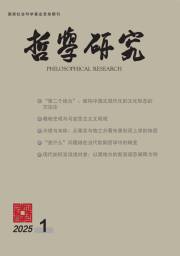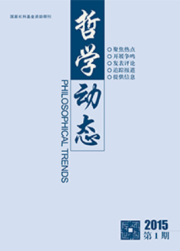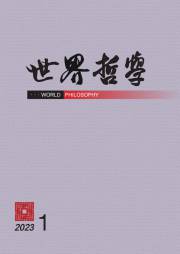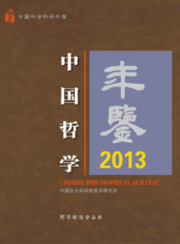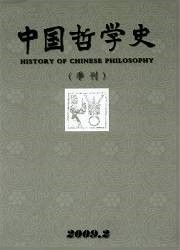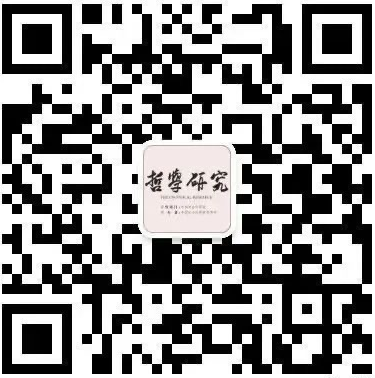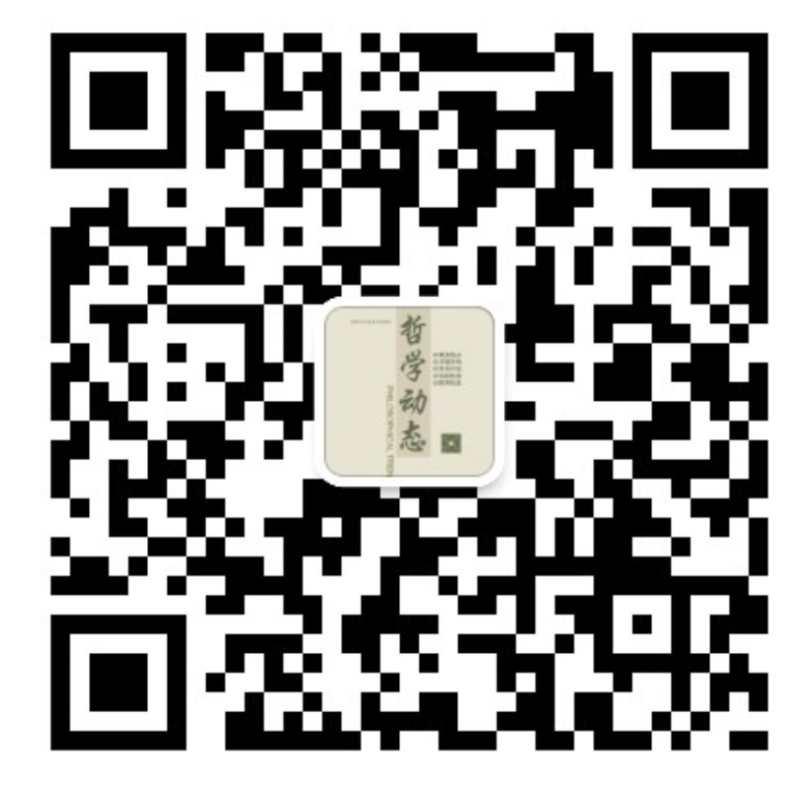【赵汀阳,德布雷】Tianxia: All Under Heaven
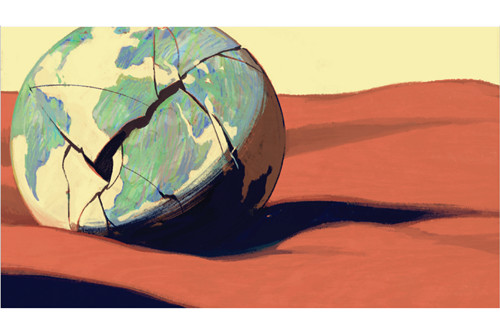
Tianxia: All Under Heaven
Does the ancient Chinese philosophy of “tianxia” offer a vision for the future of globalization?
BY RÉGIS DEBRAY AND ZHAO TINGYANG
JUNE 8, 2020
Zhao Tingyang is a professor of philosophy at the Chinese Academy of Social Sciences and a 2018-2019 Berggruen Institute senior fellow. His book “The Tianxia System” was a Chinese-language bestseller.
Régis Debray, a political philosopher, established a school of philosophy called “mediology” that reflects on how the intersection between culture and technology shapes society. He was a foreign policy adviser to French President Francois Mitterrand from 1981 to 1988.
This starts with an essay from Zhao and is followed by a response from Debray.
ZHAO TINGYANG:
BEIJING — There is a stereotyped image of China that prevails for many in the West today: an empire of despotism and an arrogant tributary system. But there is a mostly ignored, much older tale of an ancient China (about 2070 B.C. to 1368, before the Ming Dynasty), one of diverse cultures, profound philosophies and open civilization. This alternative concept of China is not only mostly absent in modern Western knowledge but, absurdly, it has also been fading out in China today.
For many years, I have been engaged in an effort to establish a theory of world order for the future along the lines of that older tale of ancient China. A feature of that story is the concept of “tianxia” — “all under heaven” — which thrived in China thousands of years ago. I believe it can apply going forward as a universal concept for a world system: a commonwealth shared by all nations, of all civilizations and for all peoples.
Tianxia is neither a promise of a perfect world nor the end of history, but rather a vision of a world politically remade to optimize the chance of enduring stability and security for all. Philosophically speaking, it suggests an ontological solution to the political problem of the clash of civilizations, as the American political scientist Samuel Huntington put it.
In the same way that the Kantian perpetual peace was not meant to be a narrowly German project, a universal tianxia system proposes a perpetual peace for the world rather than a Chinese project to dominate others. Not incidentally, since the Kantian idea of perpetual peace was limited to a condition of similarity in cultures and religions, it fails to deal with clashes of civilizations. In contrast, a concept of perpetual peace based on non-exclusion, rooted in the Chinese tradition of a polytheism with almost equal respect to every god, which tianxia embraced, is better suited to today’s globalized world.
“Tianxia suggests an ontological solution to the political problem of the clash of civilizations.”
If a new tianxia is to be possible, it quite obviously cannot mean the universalization of Chinese values. On the contrary, it should take in and take on any value that proves universally good, no matter where it originated, just as the concept of “all under heaven” transcendentally implies.
Theoretically, a new tianxia system should be established upon three constitutional concepts:
1. Internalization of the world: Accept all nations into a shared and interdependent system so there is no more exclusivity and externality. This originates in part from the German philosopher Gottfried Wilhelm Leibniz’s notion of “compossibility,” regarding belonging to the same world. Few cases illustrate this innate interdependence more clearly than the encompassing, global dimension of the present coronavirus outbreak.
2. Relational rationality: Prioritize the minimization of hostility over the maximization of exclusive interest. This contrasts with the modern notion of individual rationality in pursuit of maximizing self-interest.
3. Confucian optimality: As Confucius said, one is established if and only if he lets others be established, and one is improved if and only if he lets others improve. Achieving this equilibrium requires institutional arrangements that allow for improvement for everyone simultaneously. Confucian improvement is more reciprocal and focused on collective prosperity than “Pareto improvement,” which requires that no one gets worse when someone else gets better. Here, too, the global pandemic is a case in point: with a contagion like the coronavirus, no one is safe unless everyone is safe.
These three concepts fit within the definition of what the American economist Thomas Schelling called trans-political or trans-cultural “focal points,” where people or minds end up meeting to mutually beneficial ends. Tianxia goes beyond the modern concept of the political, suggesting a redefinition of politics as an art of changing hostility into hospitality instead of the political struggles defined by Niccolò Machiavelli, Thomas Hobbes, Karl Marx, Carl Schmitt and Hans Morgenthau.
My good friend Régis Debray is concerned that tianxia would lead to “Pax Sinica” replacing “Pax Americana.” However, this concern is misplaced because under tianxia, there would be no place for a king — the system itself is king. In this sense, it would be a bit like Switzerland, where various language groups (French, German, Italian, Romansh) and local cantons all coexist in a commonwealth of roughly equal parts where the center in Bern is essentially a coordination point with a rotating president whose power is so constrained that some Swiss citizens can’t even name the person occupying the post.
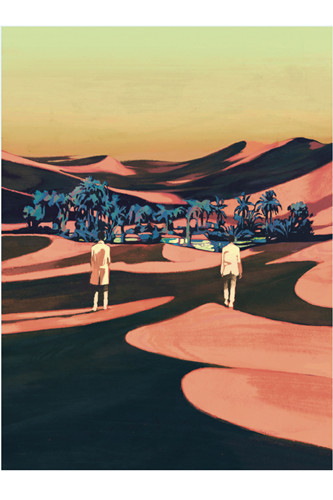
RÉGIS DEBRAY:
PARIS — In traditional Chinese culture, there exists neither the Judeo-Christian concept of a “God creator” nor the ancient Greek notion of “man” as the yardstick of all things. Chinese philosophy is cosmological rather than theological or anthropocentric. It prefers correlation to opposition, continuity to discontinuity, evolution to abrupt rifts, and gradual and unhurried changes to revolutions.
Traditional Chinese culture rejects the typical Western dualism that opposes high to low, soul to body, what is intelligible to what is sensible, winter to summer, concept to reality, good to evil and God to the devil. It rejects this type of Manichaeism. This allows China to practice socio-capitalism without stretching its imagination, a thing most unlikely in the Western world as it unifies what we see as a contradiction — the market with the one-party political system.
My friend the philosopher Zhao Tingyang has suggested a “cosmopolitical” view — a typically Chinese, organic and unitarian concept of the cosmos — applied to conflicts between classes and nations. What he calls “tianxia,” which translates to “all under heaven,” rejects any notion of borders, nation-states or war, be it domestic or international.
How does he suggest we get there? While the Western idea of revolution intends to force concrete reality to conform itself to an abstract ideal, he instead advocates a self-regulating order that renews itself spontaneously and continuously without the need for violent and voluntarist rifts. In this way, he defines himself as a counter-revolutionary, believing that disobeying the nature of things through a human decision is irrational, barren and ultimately dangerous.
“Tingyang advocates a self-regulating order that renews itself spontaneously and continuously without the need for violent and voluntarist rifts.”
This way of thinking is remarkably in sync with our present time, which subordinates history to nature (quite the opposite of what we used to do) and individuality to universality. Tianxia accepts economic globalization as well as ecological concerns and global pandemics like COVID-19, envisioning our planet as a whole, humanity as one unique species and the biosphere as primary, ultimate and all-encompassing. Tingyang’s vision (he is indeed a visionary) professes a different and less visible reality, one that exalts the feminine by giving the yin priority over the yang and rivers and oceans over mountains, because water eventually always gets the better of what is hard and strong. Water accompanies nature instead of dominating her, attempts to go with the flow rather than accumulate inventory, influences rather than demands.
The French novelist André Malraux professed that the 21st century may or may not be religious. It will, however, be more feminine than the 20th century. The West of the 20th century wanted to westernize “the Orient” by exporting the ideas of revolution and communism — Christian teleology gone crazy, as the English philosopher G.K. Chesterton put it. This whole movement begins to reverse itself, resulting in the “orientalization” of the West through Chinese medicine, Zen Buddhism, meditation and the reintegration of everything human into the cosmos. One might add an intrinsically contemporary trait — the return to one’s roots. The postmodern era favors the archaic — just like the pre-modern idea of tianxia, which is rooted in a Chinese past thousands of years old.
But we all tend to think in more national terms than we realize, and this begs the question whether the grand human family in Tingyang’s vision is not the result of globalized Confucianism, or whether this global system that promises an “eternal and universal peace” is not simply the transposition of the (more or less idealized) Middle Kingdom onto the rest of the world. Is it not the objective of any empire to abolish borders and unite all under a central government?
Up until now, the West had the gift of elevating its interests and values to the level of universal dignity (human rights, for example). Now it is China that is proceeding in the same manner — a sign, perhaps, of the return to yet another hegemony. After all, in what language shall a global constitution be drafted? Which Supreme Court shall guarantee its enforcement, and who shall nominate its members? Where will the capital of this world government be? These very practical questions remain unanswered.
“There can be no unity without a unifying, dominating force.”
Not long ago, it was taken for granted that the new world order concocted by some ultra-capitalist dreamers could only be American and that the language spoken would have to be Globish, a simplified version of English used as a global lingua franca. Today, the new world order that has been hinted at would have Mandarin as its lingua franca. Any federation must be created by a federator, a central power. There can be no unity without a unifying, dominating force. Once nation-states have disappeared, the world will need a conductor to ensure that everyone plays from the same score sheet and that centrifugal national forces fall into harmony. Will the Pax Americana be replaced by the Pax Sinica?
Tingyang’s writings have a far-reaching critical scope. Even though his political vision may be a utopia, his in-depth analysis of Western shortcomings and traditions, of Christianity’s dualism and Hegel’s dialectic, can help us distance ourselves from any automatic conclusions in our thinking. It also allows us, as Westerners, not to take ourselves as the omnipotent judges and arbiters of the universal good, but rather as among many options for humanity. One is not superior to others. This is a lesson of humility and lucidity — we in the West are indeed no longer the center of the universe.
(本文为赵汀阳和法国哲学家德布雷的一场对话,全文发表于美囯noema(所思)杂志。)
(原载“哲学中国”公众号)

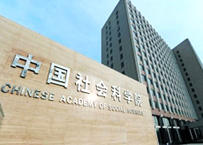
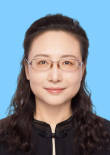
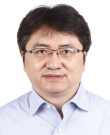
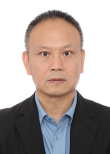
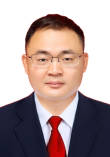
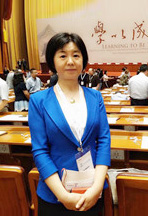

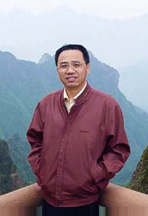

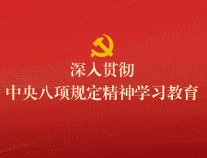
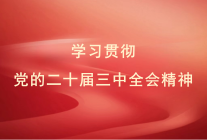
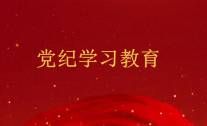
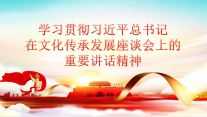
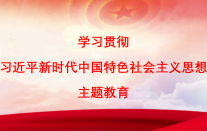
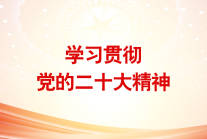
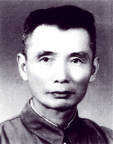 潘梓年
潘梓年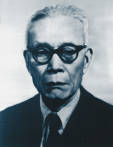 金岳霖
金岳霖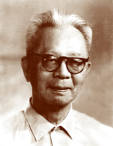 贺麟
贺麟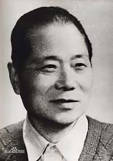 杜任之
杜任之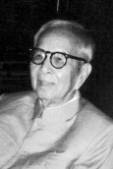 容肇祖
容肇祖 沈有鼎
沈有鼎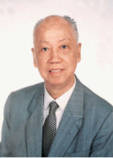 巫白慧
巫白慧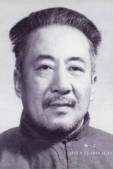 杨一之
杨一之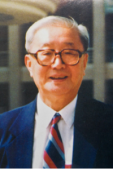 徐崇温
徐崇温 陈筠泉
陈筠泉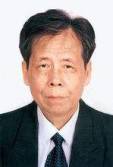 姚介厚
姚介厚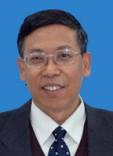 李景源
李景源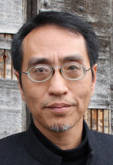 赵汀阳
赵汀阳